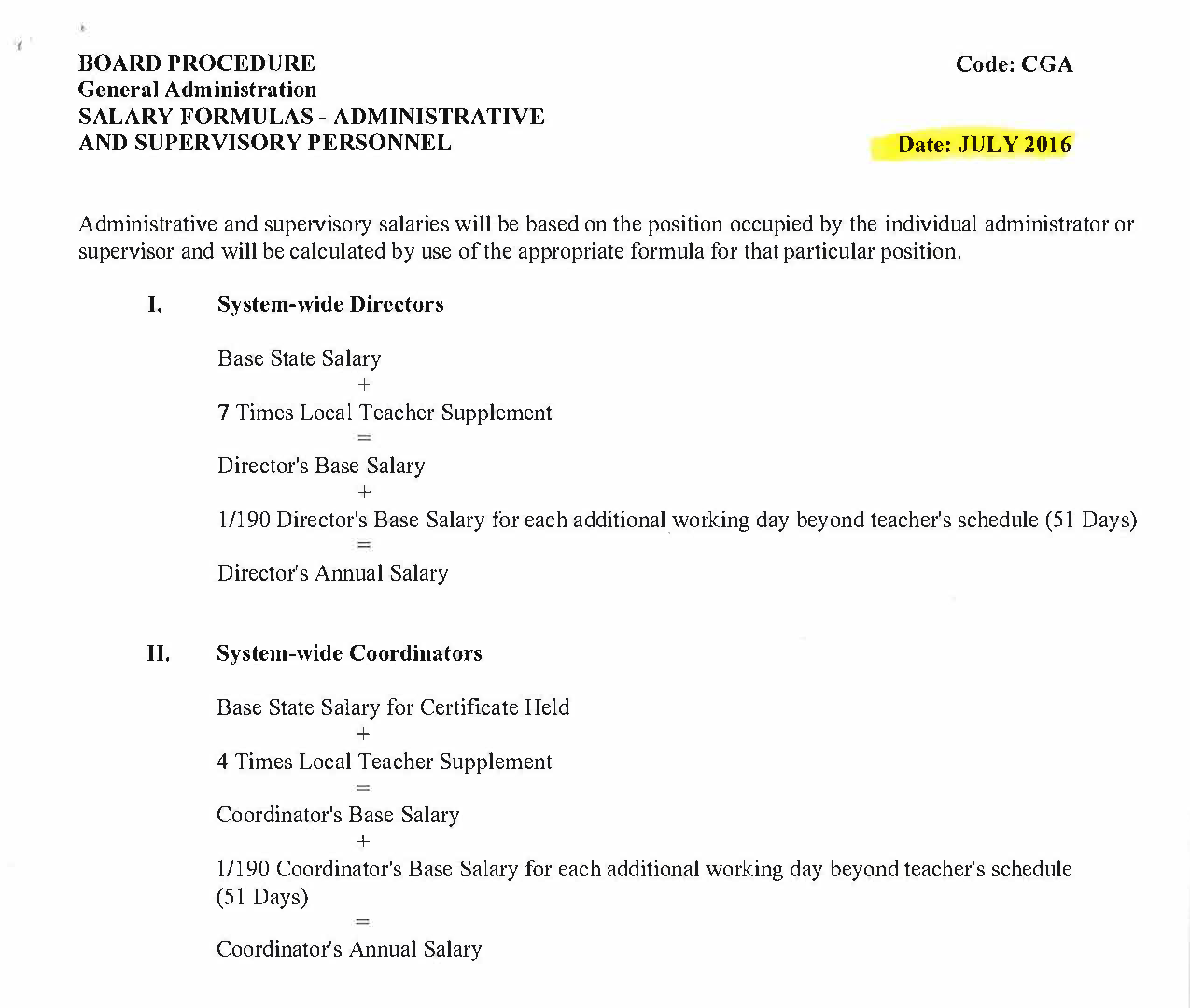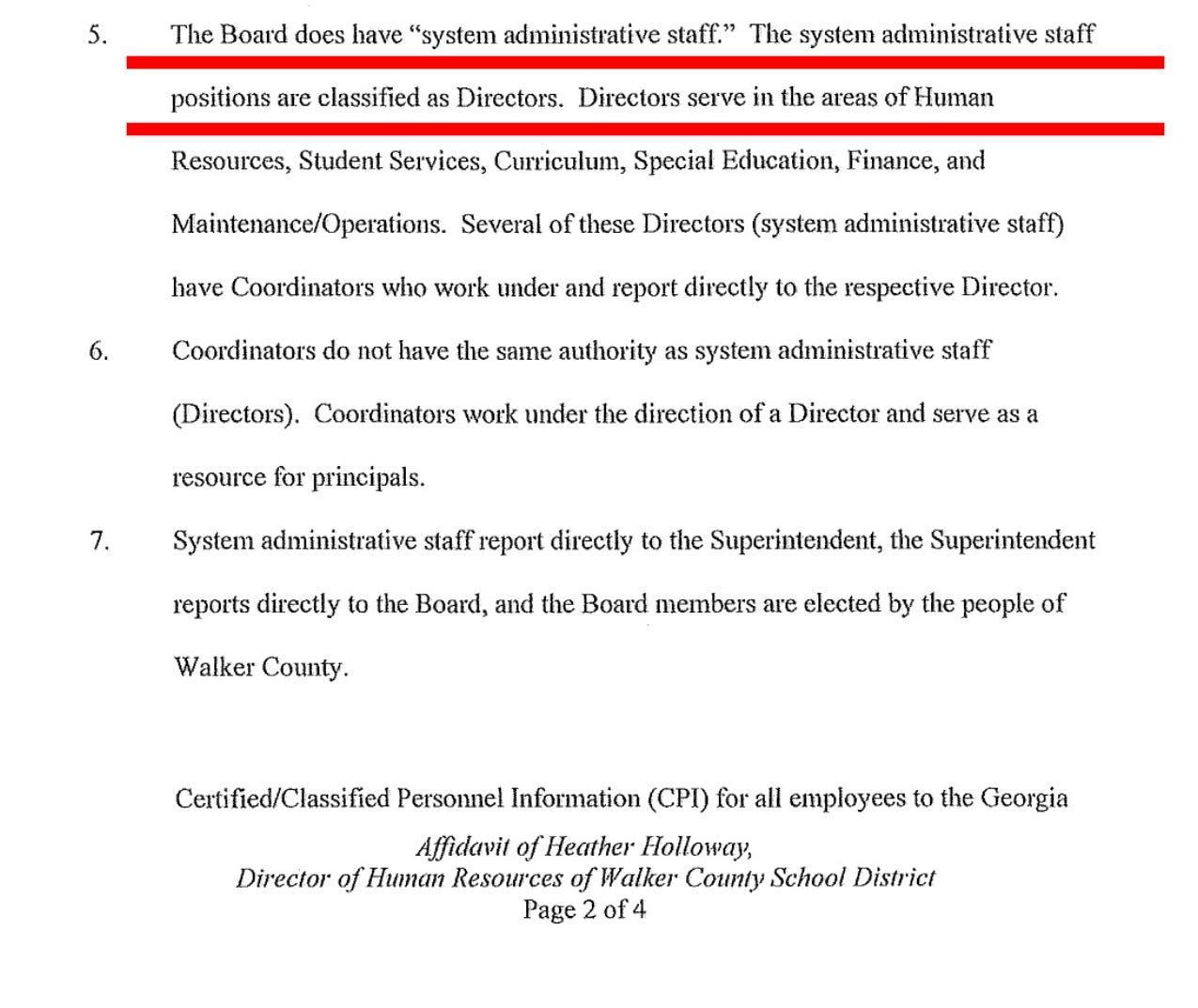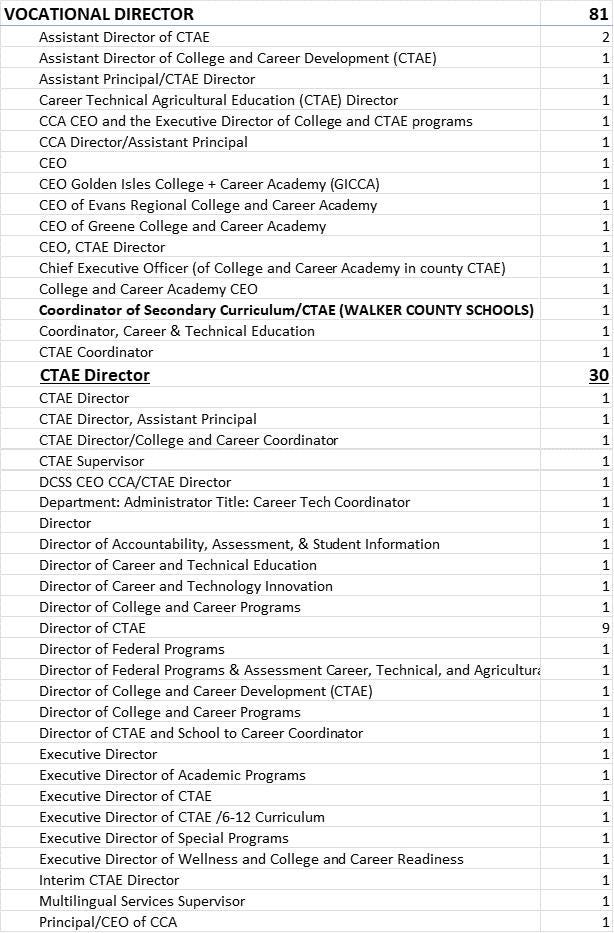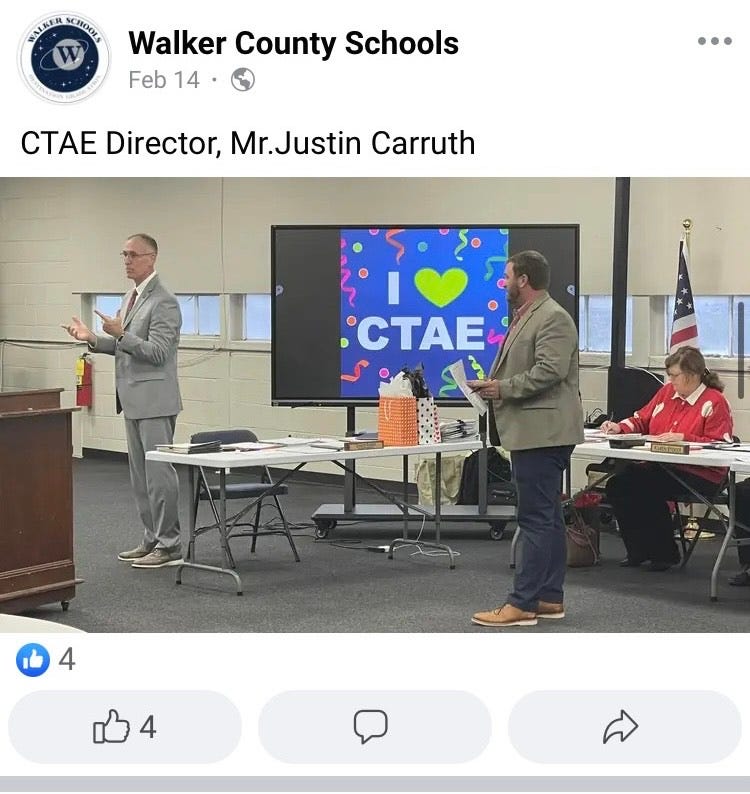Ignored, Forgotten, or Hidden? The Unrevealed Policy Walker County Schools Leadership Ignored
Explosive revelations from Walker County Schools in the form of a newly discovered school board policy from 2016 that directly contradicts sworn statements by top school leaders.
In Walker County, Georgia, an unseen school board policy has recently come to light, exposing significant issues within the local school district’s governance and leadership calling district integrity and transparency into question, again. This policy, which had been hidden from public view and was not disclosed when a request was made for “all board polices and procedures”, directly contradicts sworn statements made by top district officials in a recent court case. Understanding the details and implications of this revelation is crucial for the community, as it sheds light on the mismanagement and ethical breaches within the district.
Table of Contents:
Background: The Court Case
Earlier this year, a court case was brought against Walker County School Board members Mike Carruth and Karen Harden. The lawsuit, filed by local resident Chelsea Cagle, alleged that these board members were serving in violation of a state eligibility law; specifically, a clause regarding nepotism. Nepotism laws are designed to prevent conflicts of interest by prohibiting public officials from having close family members in influential positions within the same organization. Specifically, the case argued that Carruth and Harden were ineligible to serve on the school board because their sons held positions (CTAE Director/Coordinator and Technology Director/Coordinator) that should be classified as system administrative staff.
State Guidance and Legal Requirements
According to Georgia Code § 20-2-51, individuals with immediate family members serving as superintendent, principals, assistant principals and system administrative staff are barred from serving on the local school board. The intent behind this law is to prevent conflicts of interest and ensure integrity and impartiality in school board operations.
Unfortunately, the statute does not define system administrative staff. However, the Georgia Department of Education’s guidance for Local School Board Governance states that local board policy may define system administrative staff.
This was the central issue of the court case.
The Court Ruling and Its Flawed Basis
The court ruled in favor of Carruth and Harden, accepting the claims by superintendent Raines and HR Director Heather Holloway that only directors are considered system administrative staff in Walker County. The court ruling found that the plaintiff did not meet their burden to show that the positions held by their sons—Justin Carruth and Scott Harden—were directors. The court decision was based on affidavits from Superintendent Damon Raines and HR Director Heather Holloway. These affidavits claimed that the sons' positions were coordinators, which lacked system-wide authority and were considered middle management, not system administrative staff. The affidavits further asserted that only directors were system administrative staff in Walker County Schools.
The Hidden Existing Board Policy
The court’s decision seemed to put and end to the matter until an open records request unearthed a bombshell: a Walker County Board of Education policy adopted in 2016 that had not been publicly available online and was conspicuously absent when a request for “all board policies and procedures” was made. The document titled General Administration Salary Formulas - Administrative and Supervisory Personnel outlines formulas for calculating the salaries of administrators and supervisors both at the building level and system-wide. This policy makes it plain that both directors and coordinators are administrative and system-wide, thus “system administrative staff.”
Board Policy vs. Superintendent's Affidavit
General Administration Salary Formulas - Administrative and Supervisory Personnel : The school board policy dated July 2016 clearly outlines the salary formulas for administrative and supervisory personnel, specifically, system-wide directors and coordinators. According to this policy:
System-wide Directors: Their salary is calculated using the base state salary plus a local teacher supplement, along with additional pay for extra working days.
System-wide Coordinators: Similarly, their salary includes the base state salary, a local teacher supplement, and extra pay for additional working days.
This explicit inclusion of both system-wide directors and system-wide coordinators as administrative personnel leaves no room for interpretation. Given this policy, there was no need to look any further than established policy. There was no need for the Attorney General, the superintendent, or the HR director to interpret the definition of system administrative staff—this existing and unambiguous policy of the Walker County Board of Education leaves no doubt about which positions are included.
Superintendent's Affidavit: Contrarily, Superintendent Raines' affidavit (highlighted excerpts) asserts that coordinator positions:
Have no system-wide authority.
Are not considered system administrative staff.
Are equivalent to middle management.
This affidavit attempts to exclude coordinators from being classified as system-wide administrative staff, positioning them instead as middle management without direct influence from the Board.
The Financial Contradiction
While the existing policy settles the issue, even if one were to set aside the clear and unambiguous language of the 2016 policy and accept Superintendent Raines' dubious interpretation of system administrative staff, the financial data revealed by the administrative salary formulas undermines their claims. The actual salaries (reported to GA Dept. of Audits and Accounts) of Justin Carruth and Scott Harden in 2023 exceed the maximum calculated salaries for coordinators with their years of experience and certificate levels. This discrepancy further calls into question the veracity of the affidavits.

Justin Carruth's Leadership Certificate
Again, even if one were to set aside the unambiguous language of the newly discovered policy and accept Superintendent Raines' contradictory interpretation, there is another problem with his claims, Justin Carruth's salary calculation appears to have utilized his Tier II leadership certificate and leader level. According to the Georgia Professional Standards Commission (GaPSC), the Tier II leadership certificate is reserved for individuals in significant leadership roles who supervise other leaders. See image below and download documents.
Carruth holds a Tier II leadership certificate, which implies that his role should be classified accordingly, adding to the argument that his title and role are part of system administrative staff. The GaPSC rules state that for an individual to be paid at the leadership level corresponding to their Tier II certificate, they must be employed in a role that requires such certification. This directly contradicts the affidavits claiming his position as merely a coordinator without system-wide authority.
Impact on Board Decisions
The implications of the hidden 2016 policy are immense. Mike Carruth and Karen Harden played crucial roles in extending Superintendent Raines' contract in 2022 and again in April 2024. If their children were correctly classified as system administrative staff according to the 2016 policy, their eligibility to serve on the board—and their votes—would be in question. However, the Georgia Supreme Court has ruled that actions taken by elected officials who are later determined to have been ineligible are not invalid, as they are considered de facto officers until removed or they vacate the office. This means that the decisions made remain legally binding, despite the eligibility concerns.
Their continued service as members of the Walker County Board of Education in light of the newly revealed board document is another matter entirely.
The Need for Transparency and Accountability
The community must now ask: Why was this policy hidden, and why did key district leaders provide affidavits that contradicted it? The answers to these questions are essential for moving forward and ensuring that Walker County Schools operates in a manner that is ethical, transparent, and accountable to the public it serves.
As this revelation comes to light, it is imperative for the community to demand accountability and advocate for clear, consistent governance practices to restore trust and ensure the district operates with integrity.
Next Steps
Demand Transparency:
Call for the immediate release and public posting of all district policies, including the 2016 policy on salary formulas for administrative and supervisory personnel.
Enforce Ineligibility:
Demand the immediate resignation or removal of Mike Carruth and Karen Harden from the school board, as they are ineligible under the longstanding board policy that clearly defines system administrative staff.
Request a Governance Audit:
Push for an independent audit of the district’s governance practices and salary structures to ensure compliance with existing policies.
Hold Leaders Accountable:
Urge the school board to address the discrepancies between the affidavits and the 2016 policy. Demand explanations from Superintendent Damon Raines and other district leaders who were complicit. GaPSC Code of conduct states: Educators are required to report a breach of one or more of the Standards in the Code of Ethics for Educators as soon as possible but no later than ninety (90) days from the date the educator became aware of an alleged breach unless the law or local procedures require reporting sooner. Educators should be aware of legal requirements and local policies and procedures for reporting unethical conduct.
Attend Board Meetings:
Mobilize the community to attend upcoming school board meetings. Use these forums to ask questions and demand answers about the hidden policy and its implications.
Promote Policy Revisions:
Advocate for revisions to the district’s nepotism policy to prevent future conflicts of interest and ensure clear definitions.
Support Whistleblowers:
Encourage district employees to come forward with any additional information about governance and policy issues without fear of retaliation.
Demand Resignations if Necessary:
If explanations are unsatisfactory, demand the resignation of those involved in the concealment or ignoring of the policy.
Push for Legislative Action:
Lobby local and state representatives to introduce legislation that mandates stricter transparency and accountability measures for school districts.
Foster a Culture of Accountability:
Promote a culture of accountability within the school district by continuously advocating for ethical practices and transparent governance.
Live Not by Lies:
Demand honesty and integrity from all school district employees. Encourage a commitment to truthful communication and ethical decision-making in all actions and matters.
Relevant Evidence and Documents
TL;DR
In Walker County, Georgia, a hidden school board policy has surfaced, contradicting sworn statements by district officials in a recent court case. This policy, which considers system-wide directors and coordinators as administrative personnel, contradicts the affidavits central to the recent court ruling that allowed two board members to continue to serve despite potential conflicts of interest. The revelation exposes significant issues in the district's governance, demanding urgent community action for transparency and accountability.
FAQs
What is the newly uncovered school board policy in Walker County, Georgia?
The newly uncovered school board policy was a document titled "General Administration Salary Formulas - Administrative and Supervisory Personnel." Adopted in 2016, it outlined the salary structures for six categories of administrative and supervisory personnel in Walker County Schools including system-wide administrative personnel, including both directors and coordinators. This policy had not been made publicly available online and was not provided when a request for “all board policies and procedures” was made.
Why is the policy significant?
The hidden policy is significant because it directly contradicts sworn statements made by top district officials in a recent court case. These officials claimed that coordinators were not considered system administrative staff, while the 2016 policy clearly defines both directors and coordinators as such. This discrepancy raises questions about the integrity and transparency of the district's governance.
What was the court case about?
The court case involved allegations that Walker County School Board members Mike Carruth and Karen Harden were serving in violation of a state eligibility law regarding nepotism. The lawsuit argued that they were ineligible to serve on the board because their sons held positions that should be classified as system administrative staff, which would constitute a conflict of interest.
What did the court rule in the case?
The court ruled in favor of Carruth and Harden, accepting the superintendent's and HR director's affidavits, which stated that only directors were considered system administrative staff in Walker County. The court concluded that the plaintiff did not meet the burden of proof to show that the positions held by their sons were directors.
How does the 2016 policy contradict the affidavits?
The 2016 policy explicitly includes both system-wide directors and coordinators as administrative personnel, which contradicts the affidavits from Superintendent Damon Raines and HR Director Heather Holloway. These affidavits claimed that coordinator positions lacked system-wide authority and were not considered system administrative staff.
Why is this important for the community?
This issue highlights significant governance and ethical and administrative concerns within the school district. It is essential for the community to address these issues to ensure that the school board and school leaders operate transparently and ethically, maintaining trust and accountability in public education.
What are the implications of this revelation?
The implications are substantial. If the 2016 policy had been properly disclosed, it would have clearly shown that Carruth and Harden were ineligible to serve on the board due to their sons' positions. This raises questions about past decisions made by the board, particularly those influenced by Carruth and Harden, such as the extension of Superintendent Raines' contract. It also calls for a re-evaluation of the district's governance and accountability practices.
Why should I share this information?
Sharing this information can help raise awareness about the issues within the Walker County School District, encouraging more community members to demand transparency and accountability. Increased public pressure can lead to necessary changes and improvements in governance.
What steps should the community take in response to this revelation?
The community should demand transparency and accountability from the Walker County School Board. This includes:
Calling for the immediate release and public posting of all district policies.
Enforcing the ineligibility of board members and calling for resignation or removal.
Requesting an independent audit of the district’s governance practices.
Holding district leaders accountable for discrepancies between the affidavits and the 2016 policy.
Attending school board meetings to ask questions and demand answers.
Advocating for revisions to the district’s nepotism policy.
Supporting whistleblowers who come forward with additional information.
Pushing for legislative action to mandate stricter transparency measures.
Promoting a culture of accountability within the school district.
What is the role of the community in ensuring ethical governance in the school district?
The community plays a crucial role in ensuring ethical governance by staying informed, attending board meetings, asking questions, and holding district leaders accountable. By advocating for transparency, supporting whistleblowers, and demanding adherence to established policies, the community can help foster a culture of integrity and ethical decision-making within the school district.










